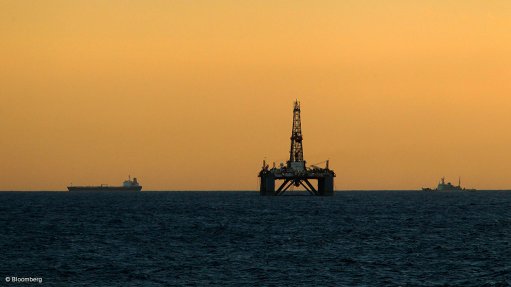
Photo by: Bloomberg
The current low oil price environment will become the “new normal” with no end in sight in the downward trend; however, oil-importing African countries were not benefiting on the back of contracted budgets and unstable currencies.
This emerged on Wednesday during a panel discussion at the Africa Energy Indaba, in Sandton.
Discussing the oil market environment, Energy Forum Zambia chairperson Johnstone Chikwanda said that, despite the potential opportunities, Africa did not appear to have benefited from the plunging oil prices.
With the continent home to several oil producing and exporting countries, and a number of African countries importing and consuming the oil, both imports and exports have been negatively impacted as investment and operational budgets suffered cutbacks.
Oil exporters were hard hit as the oil price shocked profits with the price hovering below $30/bl at one point this year – down from some $100/bl two years ago.
In addition, currency deterioration offset any opportunity to import oil or finished product at a lower price and pass on the savings to consumers. Many African oil producing countries still imported a large volume of finished product owing to limited or a lack of refining capacity.
Further, no extensive investment in Africa was being undertaken in oil and gas exploration and project expansions, as a knee-jerk reaction to the lower-for-longer oil price was conserving cash and slashing capital spending on projects, said BBP Law MD Barrisford Petersen.
Companies operating across Africa, particularly smaller organisations, scrapped exploration budgets almost immediately in an attempt to cut budgets and ride out the storm.
Many companies were also reevaluating long-term commitments and prioritising spend more narrowly.
This, he believed, would have a longer-term impact, with the smaller companies mostly on the frontier of emerging projects and responsible for many major finds in the past.
Companies would continue to review, restructure, optimise, defer investment and scale back wherever possible to survive going forward, on the back of low oil prices, noted South African Petroleum Industry Association executive director Avhapfani Tshifularo.
Shell VP for upstream Bonang Mohale added that it seemed the world would need to get accustomed to the lower oil price as full production continued, particularly in Saudi Arabia and Iran.
Despite falling oil prices, Saudi Aramco had decided not to scale back its production, as it had traditionally done in the past to offset lower pricing, for fear of losing market share as had been the case previously.
Instead, the oil producer ramped up production to near-record levels by January and was maintaining these high output levels for an indefinite period.
With sanction-free Iran also increasing its oil production – 30% of South Africa’s oil imports constituted Iranian crude – there was a possibility of further price drops.
However, Mohale believed that the price could settle at around $60/bl.
Earlier this year, Engineering News Online reported that the World Bank had, in its latest ‘Commodity Markets Outlook’, cut its price forecast for oil to $37/bl for this year, from its previous forecast of $51/bl.